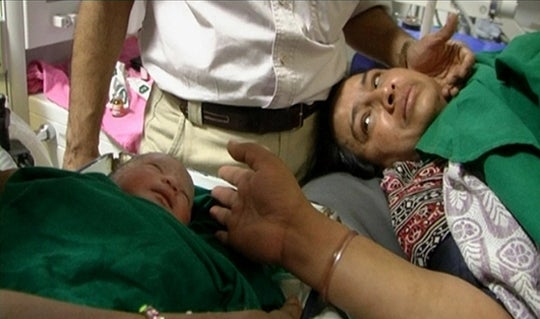
Before the Nepalese earthquake shed light on the surprisingly intimate connections between gay Israeli men and the Nepalese women carrying their babies, Israel’s South Asian incubator of choice was India. The riveting 2009 HBO documentary Google Baby takes a close look at these global socioeconomics of outsourced baby-making.
The film opens with a scene that repeats itself throughout: The Mumbai OB-GYN who runs the surrogacy clinic performs a Caesarean on a frightened woman while simultaneously answering phone calls from prospective Western clients and placing a brand-new, squirming human being on a tray, for eventual hand-off to its future family. The impoverished woman on her back has been offered a life-changing sum of money for her role—enough to build a home, to put her existing children through school—and the child-desiring Westerners who are waiting are offered a way to realize their hopes, on the cheap.
Through unfettered access to both the wealthy and poor sides of this most intimate of economic partnerships, Google Baby highlights the wonder of surrogacy and also the uncomfortable socioeconomic truths it surfaces: about wealth distribution and exploitation, about social mobility and stagnation.
JTA has documented Jewish history in real-time for over a century. Keep our journalism strong by joining us in supporting independent, award-winning reporting.





